Syria’s rebels took Homs back from Assad in a matter of days. Now they have to police it
Bel Trew meets the new police chief in Syria’s third city, tasked with keeping the peace now that forces led by the Islamist Hayat Tahrir al-Sham have ousted the regime of Bashar al-Assad. Every city across the country is now facing the same question: who will rule and how?


Your support helps us to tell the story
From reproductive rights to climate change to Big Tech, The Independent is on the ground when the story is developing. Whether it's investigating the financials of Elon Musk's pro-Trump PAC or producing our latest documentary, 'The A Word', which shines a light on the American women fighting for reproductive rights, we know how important it is to parse out the facts from the messaging.
At such a critical moment in US history, we need reporters on the ground. Your donation allows us to keep sending journalists to speak to both sides of the story.
The Independent is trusted by Americans across the entire political spectrum. And unlike many other quality news outlets, we choose not to lock Americans out of our reporting and analysis with paywalls. We believe quality journalism should be available to everyone, paid for by those who can afford it.
Your support makes all the difference.Sitting in the police headquarters of Homs, in an office that, until last week, was run by the feared intelligence network of Bashar al-Assad, Alaa Omran is holding court.
A former regime police chief turned Islamist rebel commander, he faces an unenviable task: managing a tricky transition from five decades of brutal rule by the Assad family. Their stunning defeat, by a hodgepodge of rebels led by Hayat Tahrir al-Sham (HTS) – a group that was previously aligned with al-Qaeda – has left a security vacuum that needs to be filled quickly. It is a quandary facing every city across Syria: who will rule and how?
Homs, Syria’s third city, is nicknamed the “cradle of the revolution”. It witnessed some of the fiercest battles of the 13-year civil war – the scars of which are chiselled into many neighbourhoods. Homs’s population is diverse, composed of Sunni Muslims, Christians, and the Alawite minority, which the Assad family belonged to. Omran was recruited by HTS – which has spent years distancing itself from its jihadi past – to lead the group’s police force in a city in the northwest before Assad’s fall. Even he is somewhat bewildered by the calm here, although it is still tense.
“Because Homs has a wide variety of religions, we thought it would be difficult to control,” he says at his new desk, as his police force – a mixture of ex-rebel fighters and formerly displaced Homs residents – works downstairs to handle a multitude of complaints from anxious citizens gathered outside.
“But now everything is under control. During the last week, there have been no attempts to kill anyone.”
Omran attributes the success of the extraordinary assault against Assad’s forces not just to military tactics and newly developed military hardware – there is much talk of new “Shaheen” or falcon drones – but to years of planning for the “day after”.
This planning included a transition schedule that would – according to HTS – see the military wing of rebel groups withdraw from cities in favour of a working “civilian” police force. For years, Omran claims, they ran training programmes in the northwestern province of Idlib to build a police force capable of patrolling the streets, manning stations where those wanting to relinquish their weapons could do so, and reaching out to minorities in an effort to keep the peace.

“The plan was put in place for all government departments, whether health services or police. We built units ready to take over and administer,” he adds. Omran, a Homs native, defected from the Assad regime in 2012 and joined the small Islamist faction Ansar al-Sham. He was later appointed by HTS to manage police in Haram city, Idlib. He insists he is no longer with the armed forces, and greets us dressed in civilian clothes.
This is appears to be a trend: the leader of the HTS, previously known by his nom de guerre Abu Mohammed al-Golani, now prefers to go by his real name, Ahmed al-Sharaa, and met the UN special envoy in Damascus wearing civilian attire.
Omran talks about the development of the police force being a key part of the transition to a new Syrian civilian state.

“Most of these units are comprised of people from the town they will now police, who were forcibly displaced to Idlib because of the war. I myself am from Homs ... They sent me here to be the commander because I know a lot of the people. It makes the next stage much easier,” he says.
“We put out a general amnesty announcement and created stations for [regime] soldiers to surrender their weapons and be treated as civilians,” he adds. “Many people turn up at those places daily. That said, the amnesty is not for criminals – those who committed crimes will be held accountable.”
Sheikh Shreeh al-Homsi, also from Homs and a senior HTS official, echoes the claim that HTS is withdrawing from cities in favour of a police force.
He adds that one of the main tasks will be trying to locate those behind the arbitrary detention, torture, and summary killings of Syrian citizens. “We have built an information bank concerning those who committed crimes,” he says.
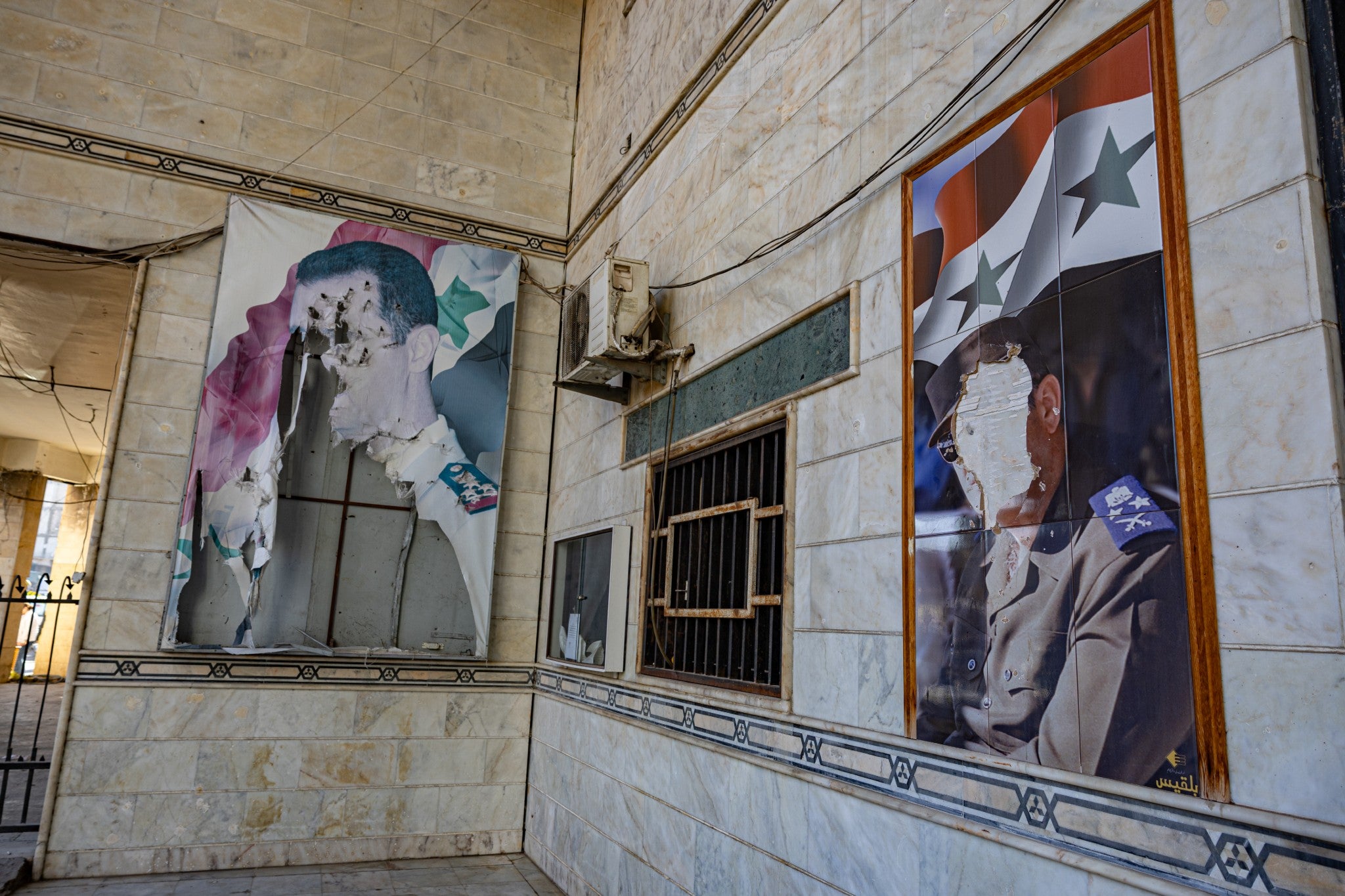
“This will be dealt with legally in the judiciary – not in a vengeful way. We won’t be driven by emotions as the accountability may not be accurate.”
The task of manning Syria’s cities and keeping the peace is huge. Outside, residents of Homs gather at the gates of the police headquarters, anxiously waiting for help. One woman says she is receiving threats from an unknown person; two others report that their cars were stolen during the chaotic aftermath of the regime’s collapse, when looting was rife. A fourth says his son went missing the day the regime fell – a former conscript with a tattoo of Assad’s face on his neck, who was last seen at a local hospital bringing in an injured person.
Anxiety pervades Alawite neighbourhoods of the city, given that the minority is often associated with the regime, as the religious sect to which the Assad family belongs. These streets, which escaped much of the war’s destruction, are bustling with clothes shops and restaurants. Here, people are mostly worried about the chaotic aftermath and ordinary citizens taking matters into their own hands. They say that either HTS or its affiliated police force – residents are not entirely sure – has stationed itself at various points in the city but that its personnel “keep themselves to themselves”. Their cars, camouflaged with sand from the battlefield, dot the roads.
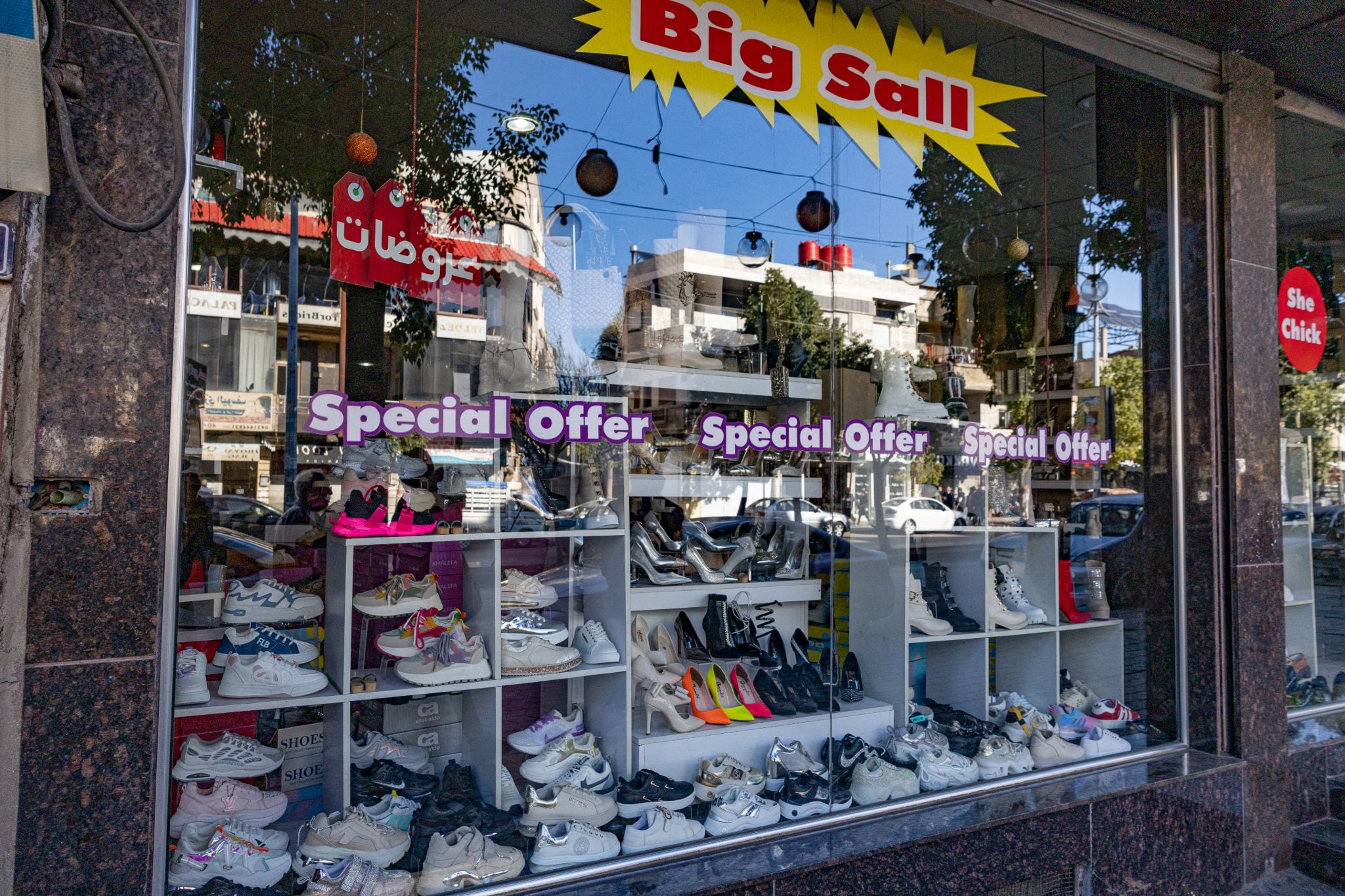
“The biggest problem is we don’t know what the new laws will be. We’re afraid of making mistakes,” says Wanuss, 48. “We heard they will prevent shisha and alcohol. During the chaos, someone destroyed an alcohol shop. We just don’t know. We need clarity.”
There are concerns across the country that the hardline Islamist ideology of HTS will also translate into restrictions on women – a suggestion that the leadership has been keen to refute. Time will tell.
There are also other confusions. Amar, 40, a Sunni living in this largely Alawite neighbourhood, says he just lost two shops because the original owners returned to claim them this week. Amar had officially purchased the shops from the former regime, not realising they had been confiscated from residents who had joined the rebels and fled.
“I lodged a request with the new police, but what do we do?” he says.
Other Alawite residents say they also suffered under the regime and hope this will be understood by those returning to the city. That just because they belong to the same sect as the former president, it doesn’t mean they supported him.
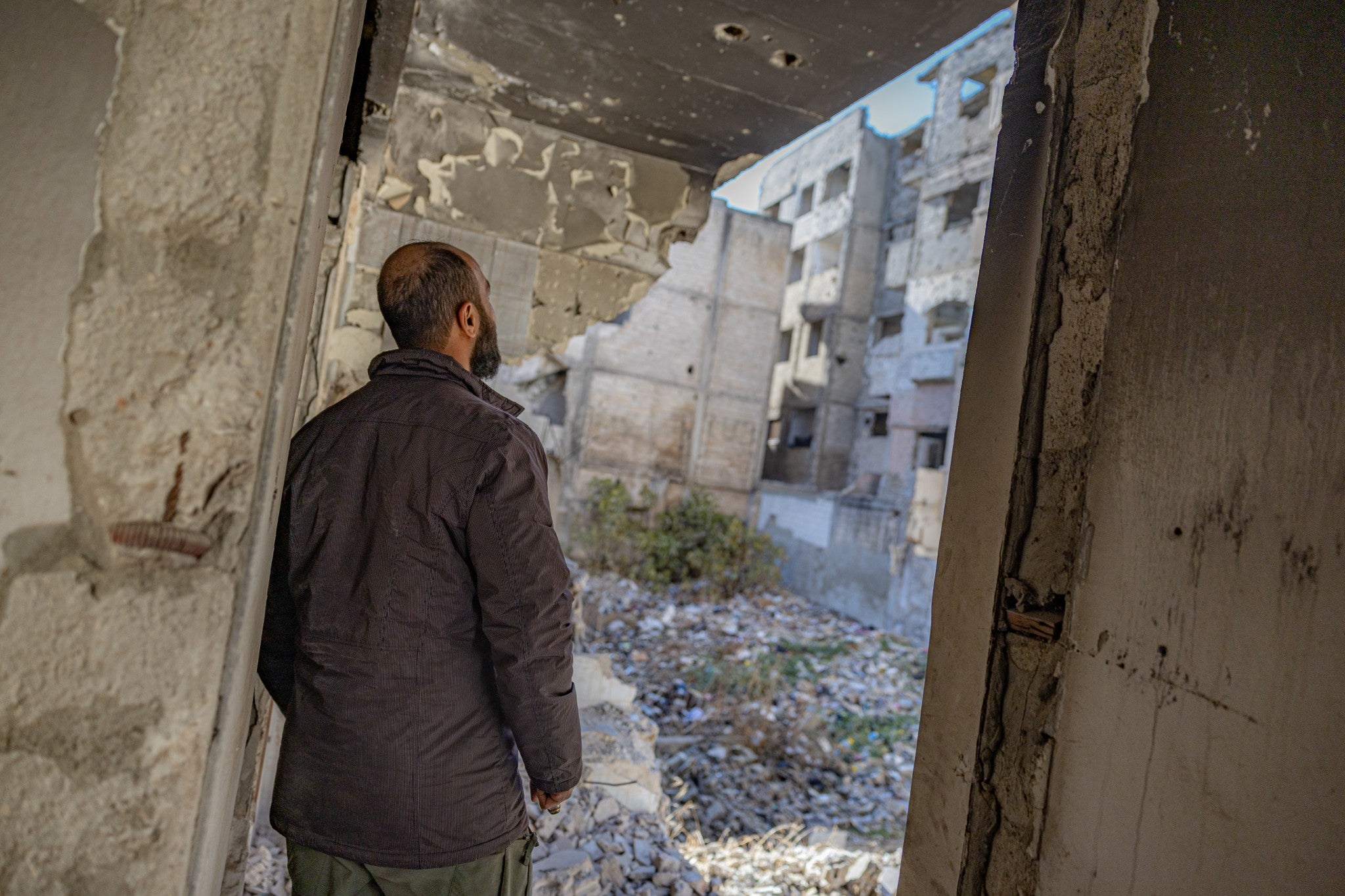
“Under Assad, I worked as a delivery driver even though I have an MA and speak English, because there was no chance to find a job,” says Ali, speaking in perfect English. “There was no future then. I hope things will be better now – nothing could be worse than what happened before.”
Omran says outreach is being undertaken in these communities, and claims to have employed people from different minorities in his police force. He also says there is a concerted effort to clamp down on any revenge attacks or violence.
That is a tough challenge, especially with emotions so high in the destroyed neighbourhoods, such as Khalidiya and Baba Amr, where horrific battles took place at the start of the civil war.
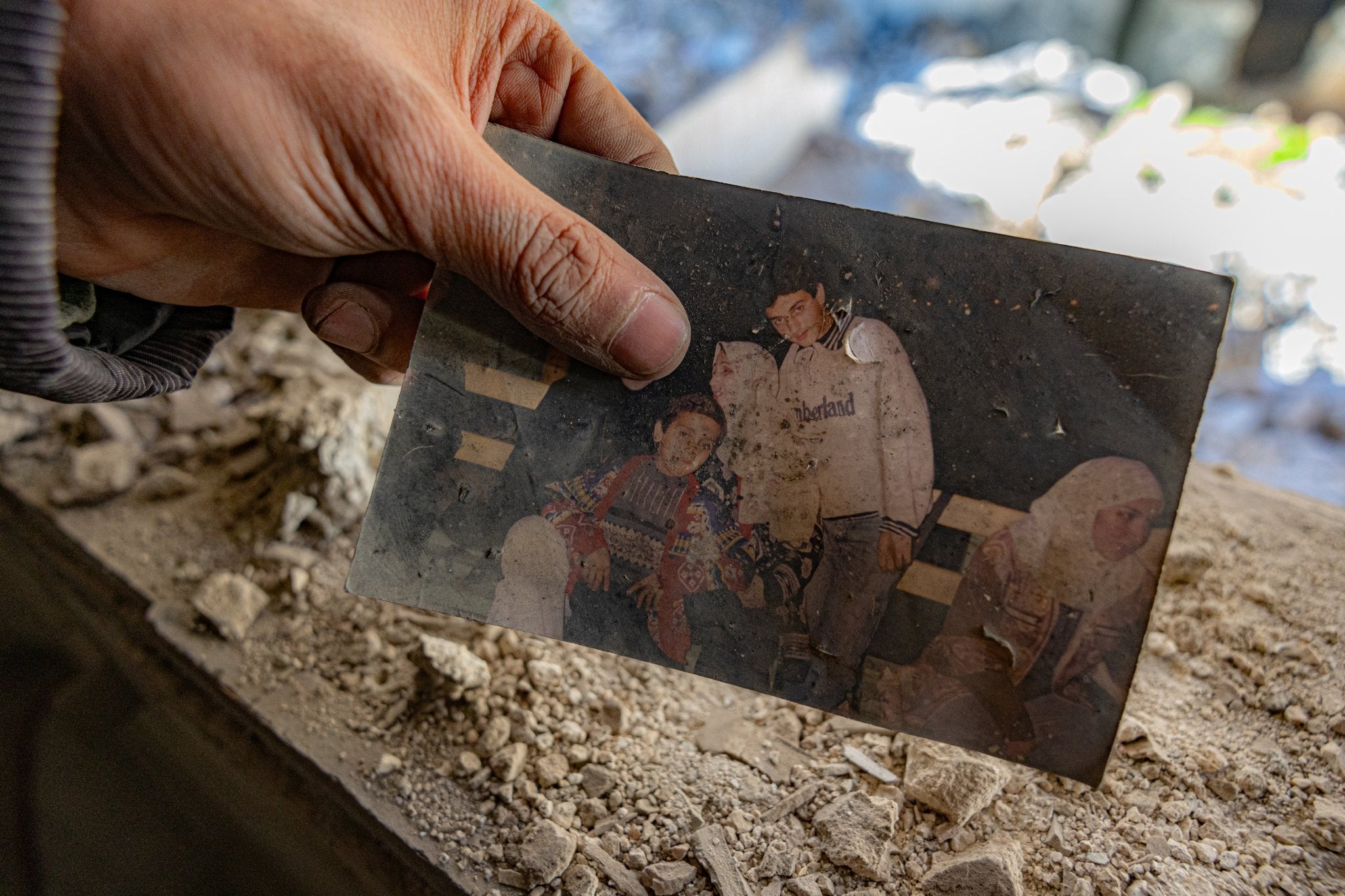
We accompany Abu Billal, 33, an HTS fighter, as he returns to his destroyed home in Khalidiya for the first time after 15 years separated from his family. He fled government military conscription, torture and prison in 2012 to initially join Jabhat al-Nusra, a group designated a terrorist organisation by the West, which was also one of the strongest armed opposition groups at the time. His unit eventually became part of HTS, also designated a terrorist organisation by Western nations, although its members are working to rid it of that label.
For years, Billal has been on the front lines. Now he is back home. In tears, he picks through the shell of his destroyed home, finding childhood photos of himself in a restaurant in the seaside city of Tartus and posing on a beach “to impress the girls”.
“I was young,” he adds, laughing.
He was last in this building in 2019, just before he was taken for military conscription – he shows us a pull bar from his youth, which is charred but still attached to the wall. He talks about how his brother would take the family landline into his bedroom and secretly call his fiancee. His family are refugees in Lebanon.
“The very first day I came here, I stood here and couldn’t come into the house. It was too much. A lot of neighbours were killed – dead or missing.”
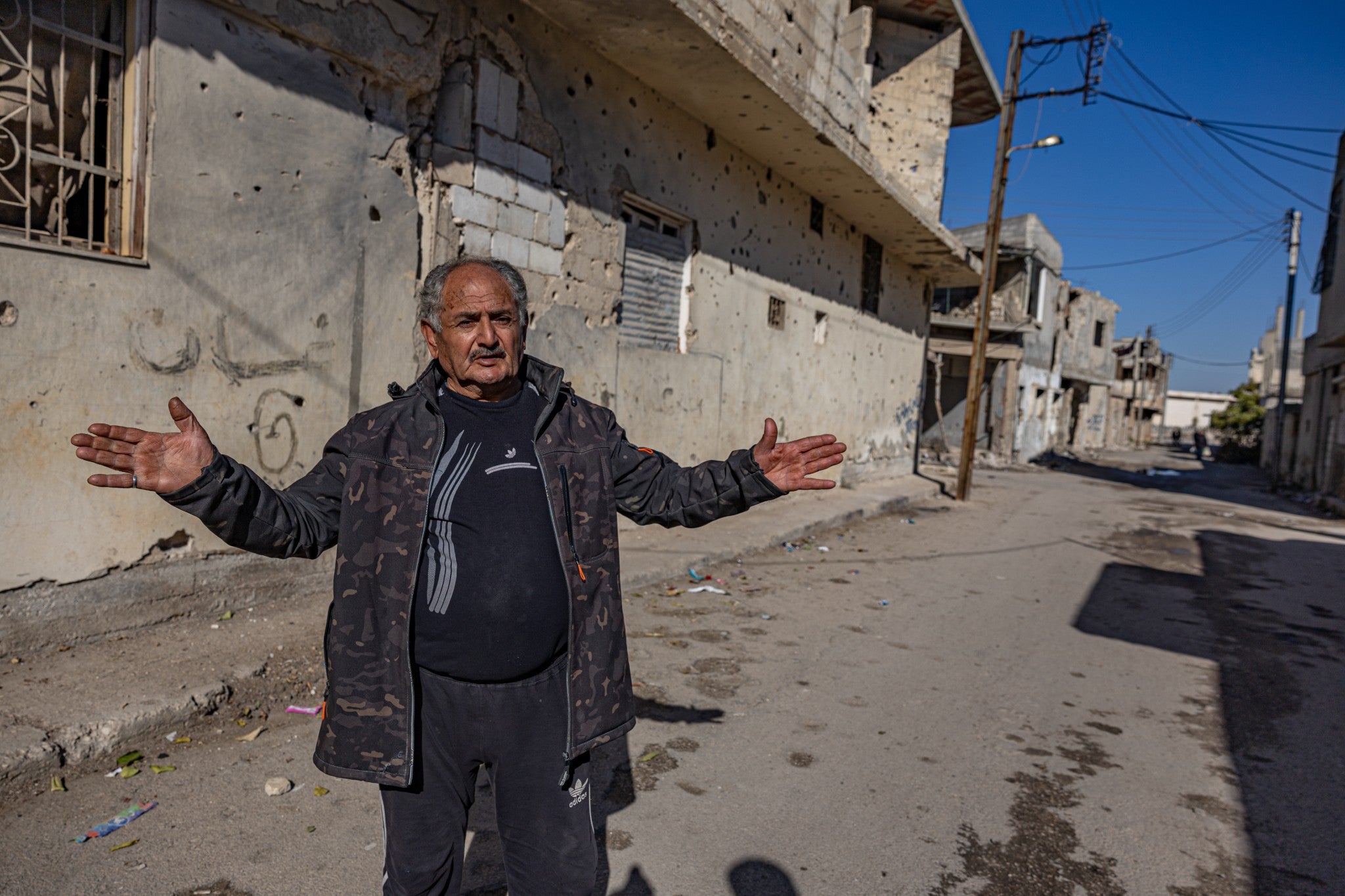
In nearby Baba Amr, Yehiyah Toumi, 55, who spent six years in regime jails earlier in the war and nearly died ferrying Western journalists in and out of these rebel areas on the back of motorcycles, still lives in what remains of the neighbourhood. Just a few hours before we meet him, he gets the news that his missing son – who was arrested in 2012 on charges of terrorism and helping people to join the rebel factions – was executed in 2015 in the notorious Sednaya prison, known as Syria’s “slaughterhouse”.
The family have spent nearly a decade searching for him. A lawyer who got access to the jail found his name and prison number on an execution list.
“For nearly a decade we were trying to search for him – we held on to the hope,” Toumi says, his destroyed home behind him. “We can only hope for a better future for the rest of our youth.”
Back in the police station, Omran promises that the goal is to achieve that better future, and that in a short time the police force will be “doubled” as the basis for starting a new state. In the interim, he and his colleagues are asking for patience from those desperate for answers about their missing loved ones, or abuses by the regime.
“The priority now is to secure the cities and areas,” Omran says. “The most important task right now is to rehabilitate the image of the police. They have not been trusted for decades. We will establish trust, and then we can investigate crimes.”
Join our commenting forum
Join thought-provoking conversations, follow other Independent readers and see their replies
Comments